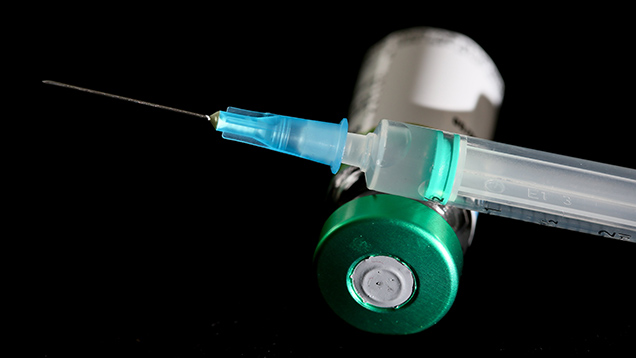Scientists highlight the risk to poultry of ‘leaky’ vaccines
 © Denis Closon/Isopix/Rex Shutterstock
© Denis Closon/Isopix/Rex Shutterstock New research has highlighted how so-called “leaky” types of vaccination can allow more virulent strains of diseases to emerge – and create risk for unvaccinated poultry.
Scientists at the Pirbright Institute were able to demonstrate how a vaccine for Marek’s disease can allow “hotter” strains of the illness to thrive.
It affords immunity to the animal but does not prevent spread of the disease, making it an “imperfect vaccine”.
A perfect vaccine is one which both confers immunity and prevents transmission.
See also: Bacteria that may cause spotty liver in layers identified
The theory is the pathogenicity of disease is self-limiting, as it does not want to kill its host species.
But a vaccinated animal can survive more virulent strains, and still spread them among populations.
Professor Andrew Read, of Penn State University, said the research highlighted the risk of such vaccines to birds in the population that had not received them.
Vital research
It was a problem equally applicable to humans, he added. “When a vaccine works perfectly, as do the childhood vaccines for smallpox, polio, mumps, rubella and measles, it prevents vaccinated individuals from being made unwell by the disease, and it also prevents them from transmitting the virus to others.
“Vaccines for human diseases are the least-expensive, most-effective public-health interventions we ever have had.”
The research, published in journal PLOS Biology, highlighted the importance of vaccination and a “vital” need for continued research into the topic, said Prof Read.
